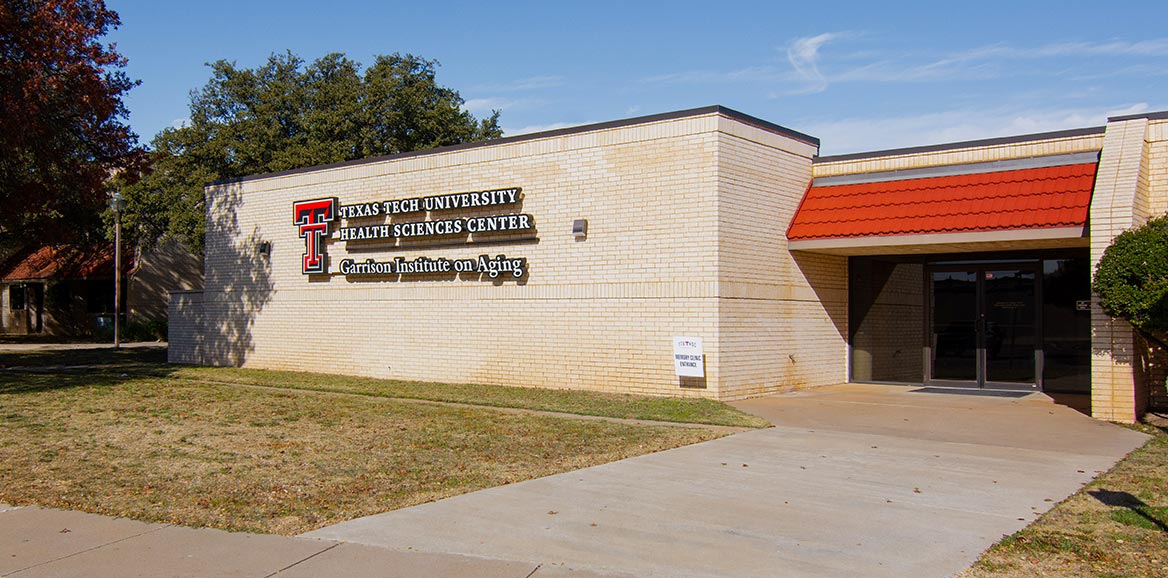Garrison Institute on Aging

Welcome To The Garrison Institute on Aging
Located at 6630 Quaker Ave., Suite E, Lubbock, Texas 79413
Mission:
Our mission is to promote healthy aging and address health issues in the aging population through translational research, innovative educational activities, and community outreach programs. The Garrison Institute on Aging (GIA) conducts and facilitates clinical and basic research into the possible causes and predictors of neurodegenerative disease and dementias such as Alzheimer’s Disease (AD) and related brain disorders. The GIA’s educational programs inform the community about aging-related health issues such as dementias and mental health. Our community outreach programs provide services to patients and their care partners to improve quality of life and access to healthcare.
Vision:
Our vision is to serve as the central hub within Texas Tech University Health Sciences Center (TTUHSC) for innovative initiatives in translational research, interdisciplinary education and community outreach related to healthy aging, aging-related disorders, brain diseases and dementias, and mental health through an inclusive and collaborative environment. The GIA aims to develop and lead programs designed to better understand underlying disease mechanisms, risk factors, and explore new ways to diagnose and manage aging-related diseases - ranging from basic science to clinical trials - to improve brain health and healthy aging overall in the communities of West Texas.
Newsletter
The TTUHSC GIA Newsletter is released every three months. Stay up to date with news and events by subscribing
at the link below.
Quick Access Links
- Get Directions
- Events and Workshops
- History of The Institute
- Meet The GIA Team
- Make A Donation Today
- Questions & Answers
Executive Director

Volker Neugebauer, M.D., Ph.D.
Grover E. Murray Professor and University Distinguished Professor Chair,
Department of Pharmacology and Neuroscience,
School of Medicine Executive Director and Chief Scientific Officer,
Garrison Institute on Aging Director,
Center of Excellence for Translational Neuroscience and Therapeutics
Giles McCrary Endowed Chair in Addiction Medicine,
Mildred and Shirley L. Garrison Chair in Aging,
Texas Tech University Health Sciences Center
Meet Garrison Institute on Aging's Executive Dr. Volker Neugebauer. Dr. Neugebauer has been with the institute since 2019, after serving in leadership roles as Department Chair and Center Director at the Texas Tech Health Sciences Center for 6 years. Through his leadership, the GIA has grown and broadened the scope of our existing community outreach efforts, to provide and improve physical and mental health care to dementia patients and their unpaid caregiver.
Got Questions?
We're here to help. Contact us if you have questions.
Texas Tech University Health Sciences Center
Garrison Institute on Aging
6630 Quaker Ave., Suite E,
Lubbock, Texas 79413
GIA Memory Clinic: 806.743.9401
Phone: 806.743.7821
Fax: 806.743.3331
Email: GIA@ttuhsc.edu

